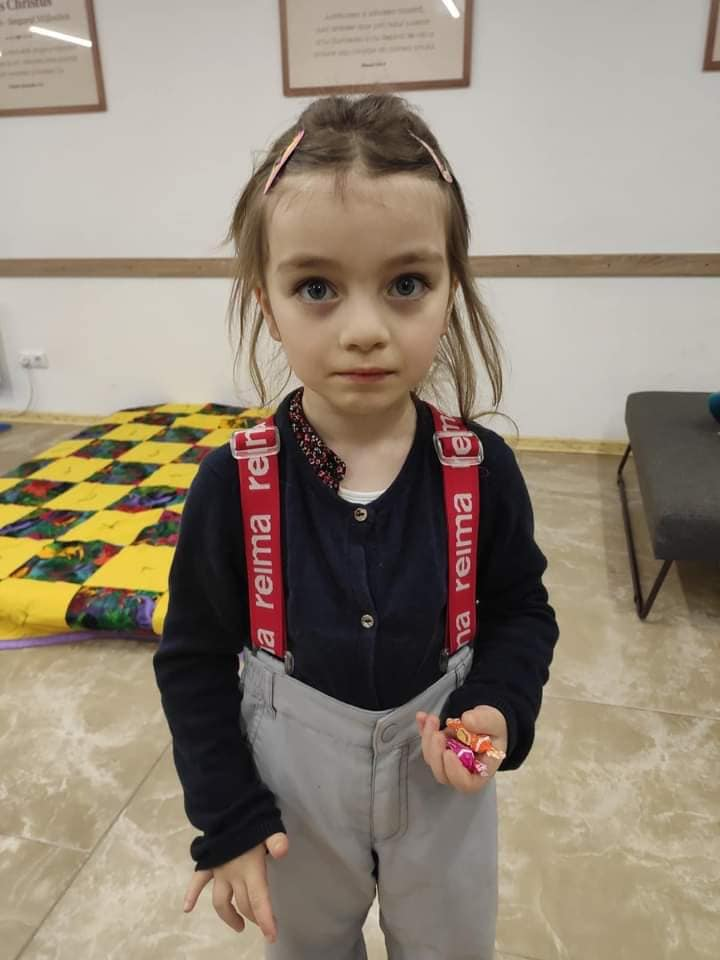The Russians Are Coming
I am a child of the 1950s, the “cold war” era. It was a schizophrenic time, characterized by tuna casseroles, new kitchen appliances and happy suburban families on the one hand, and on the other hand, bomb shelters, duck and cover drills in elementary school, and lurid propaganda about the threats of attack from the Soviet Union.
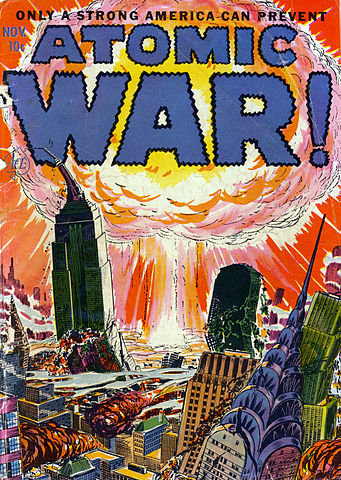
It’s no wonder, then, that around 7 years old I took this schizophrenia and created a recurring nightmare for myself: I am outside and I look up. I see tiny black specks in the air, and I hear the sound of war planes – the same sight and sound from the newsreels on our first television. They are coming closer. I see their bay doors open. Bombs are dropping out, plummeting toward my city, my neighborhood, my house. I run inside. “Mommy, mommy, the Russians are coming! The Russians are coming!” I cry in a panic. She turns from the kitchen sink, smiles and says brightly, “Well, then, I better devil some eggs.” I try to explain they are not coming to visit, they are dropping bombs – I saw them! — but by now she has the refrigerator door open and is reaching for the egg carton. I give up… and wake up, in a sweat.
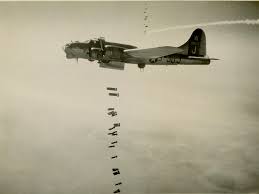
Clearly I realized that I had been born into a very large, very scary world. On television, in magazines, and at the movies, I saw soldiers in fox holes, shooting guns, smoking cigarettes; planes taking off from aircraft carriers; rockets exploding and bombs dropping out of planes; and the ruin left behind, crying children, dirt-caked faces streaked with tears. I heard ominous voices reporting the evils of communism. These threats seemed both very far away and very close. At school we had always had two drills — for fire and earthquakes — and now we had a third, called an air raid drill. We all knew it was for when the Russians dropped bombs, and some of us had little faith that lying face down in the hall with our heads under the long row of water fountains was going to save us. We girls were allowed an extra protection. We could cover the backs of our bare legs with our coats.
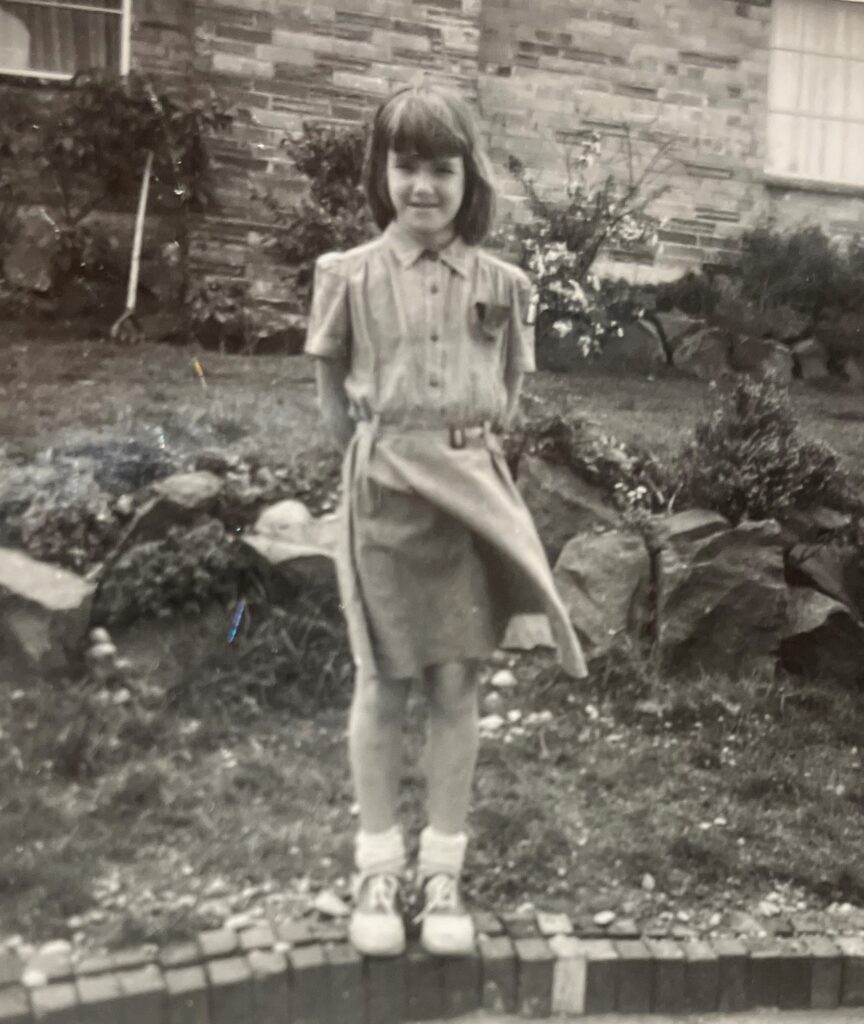
And yet life went on in my quiet Seattle neighborhood, where we kids had adventures. We rode our bikes in the alley, built forts, created clubs with elaborate rules, organized parades in honor of whatever — like the end of school, or 4th of July, or our pets, or our bikes themselves, festooned with crepe paper, playing cards in the spokes, etc. We walked to school, many blocks by ourselves, discussing the big questions like the ones posed by the saying “step on a crack, break your mother’s back” which we feared might be true. As we hopped over the cracks we mused, if you step on a crack will you really break your mother’s back, and just how would that work, and would she know that you did it, and would you get in trouble, and why wasn’t there an instruction about how to make her back well again?
And now in 2022 here I am again. The Russians are coming. They are devastating Ukraine, and Putin is talking nuclear. I have some of the same disconnect and fear I had in the 1950s. That second grader who was worried that her coat wasn’t big enough to cover her bare legs still lives within me. The images are no longer in grainy black and white on a primitive TV screen; they are in color, on the nightly news, all day on the 24 hour channels, in the morning paper, in email blasts from those offering ways to help the refugees, or from those who just need to share their panic. Unlike the second grader me, I can understand the horrors of this situation and the potentially devastating aftermath. But also, the grown up me can find inspiration and a shred of hope in the protests happening within Russia and in the outpouring of support for the refugees.
I close with a report (below) that filled my heart. It is from Moldova, a tiny republic on the Ukraine border. Let’s hang onto these images of good people doing good things, and hope that we may be able to support these efforts in our own way. This is not a time to devil eggs.
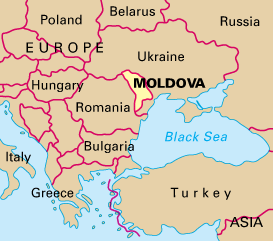
From Graeme Innes, in Moldova:
I am unspeakably proud of Moldova and the Moldovan people today! An unimaginable crisis has brought out the very best of this people.
Moldovans have been bravely driving to the very edge of a war zone to collect those in need of help. Ordinary Moldovans and churches have been opening their doors en masse to our beloved Ukrainian neighbours. It is remarkable that, given the chaos, an extraordinarily well-organised system has been run in finding homes for families. In a matter of hours I have received several thousand messages over Viber and Facebook from those who are coordinating the support efforts.
Convoys of taxi drivers have been leading Ukrainian families to their places to stay. There have been donations of everything imaginable to help out those who could only bring a few belongings with them.
I have never been so honoured to live amongst the Moldovan people.
So many people around the world feel so helpless in the face of such an unfolding humanitarian disaster, well today, a little known country (that has barely been mentioned in the news reports) has stepped up. Moldova, you have done the world proud!
Bravo Moldova!
Bravo Moldoveni!
